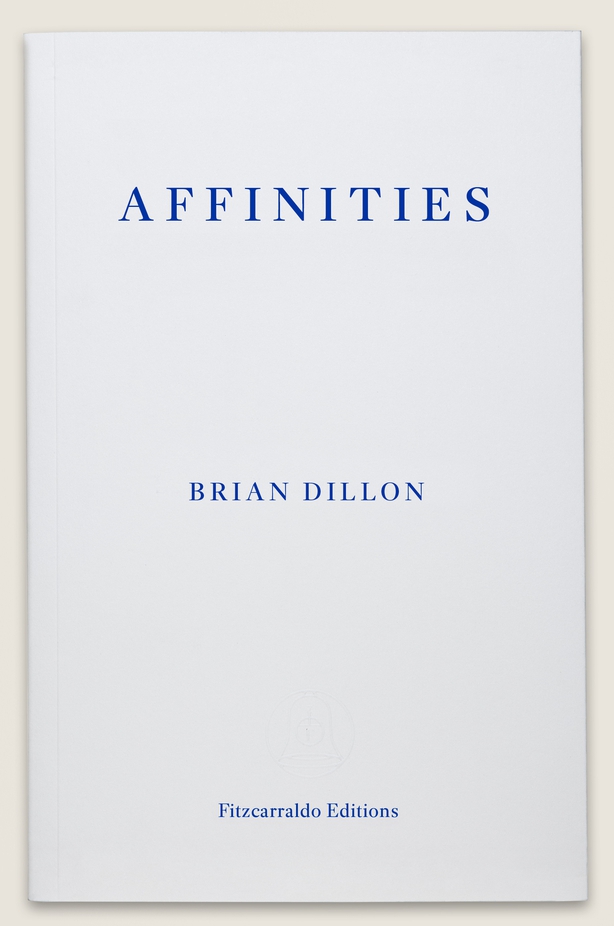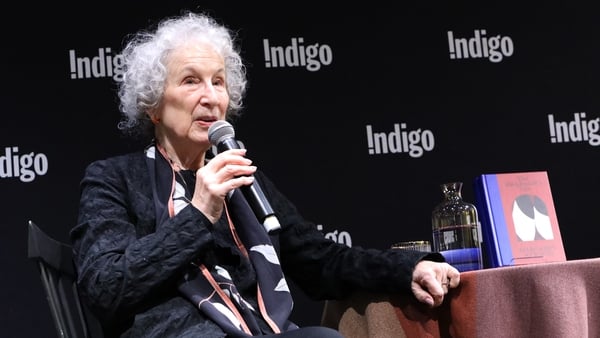It's only in hindsight that the ephemera of our lives begins to take shape. Photographs, snatches of song lyrics, stories, melodies, furniture, trinkets. The curation of objects associated with meaning and subsequently laid out to add narrative clarity to a life. What, if anything, connects these objects to the moments they represent? Does their presence say anything at all about the aesthetic sensibilities of the curator, or are they random, replaceable; slats in the hull of Theseus’ ship?
Such is the proposition at the heart of Brian Dillon’s latest collection of essays, Affinities; 'an extraordinary book,’ we are told by the blurb. ‘About the intimate and abstract pleasures of reading and looking.’
Except the truth, as in all of Dillon’s writing, is rarely pure and never simple. Dillon approaches his subject from multiple angles—personal, etymological, academic, critical—and in so doing seems to deconstruct his own relationship with the world so that the very concept of ‘affinity’ becomes as slippery as the objects it seeks to pull together. Pleasure, in other words, is not always the end result, and one gets the sense that Dillon would be bored by his enquiries were they to culminate in a conclusion so singularly focused.
We need your consent to load this rte-player contentWe use rte-player to manage extra content that can set cookies on your device and collect data about your activity. Please review their details and accept them to load the content.Manage Preferences
Listen: Brian Dillion talks Affinities with RTÉ Arena
The book itself ranges loosely across a series of images which, for one reason or another, have stayed with the author over the course of his life. We are introduced to everything from a 17th Century microscopic drawing of a full-stop by Robert Hooke to a 1981 TV adaptation of Brideshead Revisited by Evelyn Waugh. Peppered between these 30 or so essays is a kind of autobiographical quest, which Dillon embarks on to determine whether ‘affinity’ is really the correct term to describe the relationship with his chosen imagery.
In his ten-part Essay on Affinity, the word variously comes to signify preference, familial bonding, alchemical process, and even enmity, yet the constant always seems to be a connection with the author himself. Even things we have a deep discomfort with, or hatred for, Dillon seems to say, define us in our opposition to them. Where would Holmes be without Moriarty, for example, or Dillon (as he says in section VI of his ‘Essay on Affinity') without ‘a type of unacknowledged prejudice’ against the photography of Diane Arbus?
With this clever positioning of his thesis, Dillon has primed himself against all anticipated criticism. How, after all, can one be charged with bias towards or against a subject if bias has already been taken as the central thesis of the book? How can one arrive at any safe conclusions about the value of art if they ignore the fact that objective ideals are an impossibility?
"This episodic essay on affinity runs through the book like a loose seam," Dillon writes in section I. "Less an argument than a mood or a hunch, which the reader may encounter as it comes, or ignore. Such is the risk of affinity."
In this sense Affinities - if not most of Dillon’s oeuvre - fits comfortably into a lineage first established by mighty forebears like Roland Barthes, Robert Hughes, Susan Sontag and John Berger. Personal, yes. Biased, absolutely. But no less high stakes for that. Indeed, had Dillon chosen to write about his subjects without first putting himself on the line, Affinities might have disappeared into that well-respected but popularly obscure realm of critical theory. ‘One of the perils of writing,’ he says. ‘Is that I may only describe my affinity, and fail to embody it.’
As it stands, though, Dillon has once again cemented himself as a vital, original, knowledgeable, and above all readable interlocutor on the importance of art. Another of Ireland’s great contributors to the world of belles-lettres, able to hold his own with any of history’s great intellectuals. For anyone looking, Affinities is above all a challenge to anatomise and order the influences in our own lives, lest we become incurious lose the very thing that makes us human.

Affinities is published by Fitzcarraldo Editions


